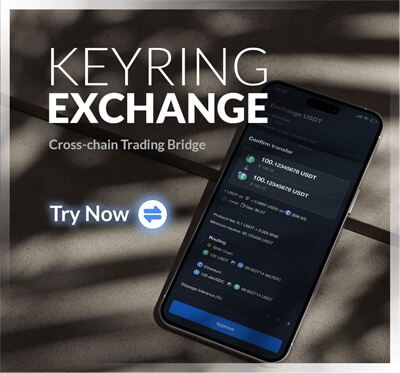Polygon 2.0 Unveiled: A Zk-Powered Future

The News Now
On Monday, Polygon Labs introduced Polygon 2.0.
The team calls Polygon 2.0 “the value layer of the internet”.

The internet was revolutionary because it gave anyone the ability to create and exchange information across an infinitely scalable and unified environment.
Blockchains are attempting something similar – systems that allow anyone to create, own, and exchange value online.
The problem is that, in their current form, they aren’t very scalable or unified.
They get clogged when too many people use them, and liquidity and dApps are walled off from each other by their respective chains.
Imagine too many people hopping online and the internet becoming laggy, you can only access certain websites with specific browsers.
That is also the current situation of Web 3.
What is Polygon 2.0?
Polygon (MATIC) has had a remarkable journey since its launch in 2017.
The project has come a long way in development and has won several partnerships with the world’s top famous companies and brands.
In a recent tweet, Polygon Labs shared that they will soon reveal a blueprint for 2.0 in the next few weeks.
As detailed in the post, Polygon 2.0 will focus on unlimited scalability and unified liquidity.
Related Reading: Cedro Finance: New Era in DeFi Space
Polygon 2.0: Opens up a New Vision
Polygon 2.0 is the culmination of over a year of collaboration between Polygon Labs, developers, researchers, applications, node operators, validators, and the broader Polygon and Ethereum communities.
Their vision is “to build the Value Layer of the Internet”.
This requires establishing an underlying protocol that allows individuals to create, exchange, and program value, similar to how the Internet allows the creation and exchange of information.
Polygon 2.0 is a set of upgrades that help reimagine various aspects of Polygon, from tokens, and protocol architecture, to governance.
Polygon 2.0’s Multi-chain Architecture
Polygon 2.0’s announcement comes just a week after Optimism rolled out its long-awaited Bedrock upgrade.
Polygon 2.0 seems to be laying the groundwork for its own multi-chain ecosystem.
The Polygon ecosystem has a formal governance process, which continues to expand to empower the community.
It is important to reintroduce efforts around long-term thinking on Polygon governance.

The role of builders, creators, and all others in the Polygon ecosystem is more meaningful than ever.
The announcement said:
“Polygon 2.0 is a network of L2 chains powered by ZK, unified through a new cross-chain orchestration protocol.”
This is a major milestone for the Polygon ecosystem.
Related Reading: How Investors Can Tap Into Derivatives With ETFs
The Three Pillars of Polygon Governance will Continue with Polygon 2.0
The ultimate goal is to come up with specifications for an overarching governance framework, capable of pushing the Web 3 culture.
With that vision, there will be dramatic changes in the Polygon network and positivity in the MATIC price change.
Three pillars of Polygon Governance are distinguished, each of them with its own characteristics:
- Protocol Governance
- System Smart Contract Governance
- Public Goods Funding

The Concept of Value Layer in Polygon 2.0
The concept of Value Layer was introduced by Ethereum, indicating that people can create, exchange, and program value seamlessly and securely, without intermediaries.
The Value Layer democratizes access to the global economy, enabling DeFi, digital ownership, new mechanisms, and much more.
Polygon 2.0 is announced to be a blueprint for Value Layer, referring to a set of upgrades that radically reimagine almost every aspect of Polygon.
Polygon 2.0 introduces key features and improvements as the following:
- Polygon SDK
- Introduction of a new PoS chain
- A new network of Zk-powered L2 chains
- Scaling solutions
- Cross-chain bridges
- Secure Infrastructure
Important Dates of Polygon 2.0 Upgrade Plan
It is announced that only the Polygon community will have the right to accept and implement Polygon 2.0.
Polygon 2.0 Starts off with Polygon PoS
Polygon PoS was introduced on June 19, 2023, which is a huge step forward for the Polygon ecosystem.
“Many users and developers still prefer Polygon PoS because of its strong ecosystem, network effects, and very low fees, often orders of magnitude lower than Ethereum rollups.”

The strength and activity of Polygon PoS will help bootstrap the rest of Polygon 2.0.
Please look forward to when the architecture and stack are established.
Related Reading: How to use KEYRING PRO
Polygon 2.0 Proposes Polygon ZkEVM Validium Upgrade

Polygon Labs has submitted a proposal to upgrade the Polygon POS chain to a zkEVM Validium system.
According to the team, the Validium upgrade should significantly lower fees and increase scalability, because it makes transaction data available off-chain.
This is opposed to the current system which publishes transaction data to the Ethereum mainnet for validity (which therefore costs Polygon ETH gas fees).
Polygon Labs says the existing set of 100 validators will serve up the transaction data off-chain.
Related Reading: PulseChain: A Simple Explanation
Final Thoughts
Enter Polygon 2.0. Technically, it’s a network of ZK-powered L2 chains, unified by an overarching coordination protocol.
According to Polygon Labs, it’s infinitely scalable.
From a user’s perspective, it’s one big, unified blockchain.
Developers on the backend can continually scale it by adding new L2 chains.
Users on the front end never know the difference.
Given Polygon’s raging success in the crypto economy, this is a project to keep your eyes on.
If you’re interested in Polygon 2.0, please refer to this article. We’ll keep you updated as more news is released.


